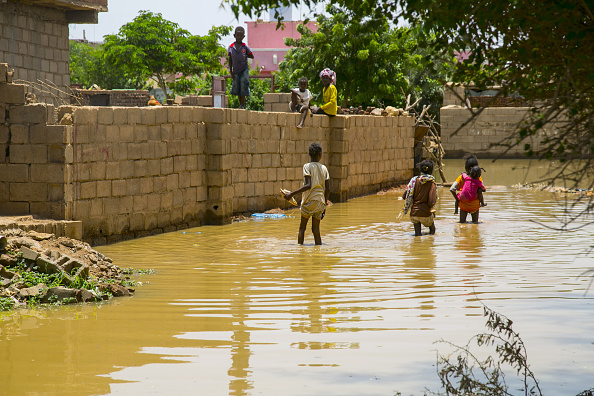Flooding has displaced at least 623,000 people in South Sudan since August, forcing many to evacuate their homes, with the situation aggravated by continued fighting, according to the UN’s emergency response agency.
The United Nations Office for the Coordination of Humanitarian Affairs (OCHA) reported in a briefing note that torrential rains had forced rivers to overflow, flooding homes and farmland in eight of South Sudan’s ten states.
Over two-thirds of the impacted communities now face the risk of hunger as food prices rise by 15% since August, according to the agency, with emergency workers utilizing canoes and boats to reach cut-off populations.
‘Schools, homes, health facilities and water sources were inundated, impacting people’s access to basic services.’
Some families have been able to flee to the capital Juba, while others have set up makeshift camps along highways, grabbing what few possessions they could from the ruins of their flimsy thatched huts.
In some parts of the country, violence between rival communities has forced tens of thousands of people to leave their homes while also complicating emergency workers’ efforts to help flood-battered communities.
UN teams have struggled to get aid to Warrap, a northwestern state plagued by ethnic violence, which is now battling a measles outbreak.
Meanwhile, no fewer than 80,000 people have been uprooted from their homes in Western Equatoria state in the country’s southwest as a result of the fighting which erupted in June, OCHA said, with some fleeing to the Democratic Republic of Congo.
The agency last month warned of limited supplies and a funding shortfall, saying that it had only received 54 percent of the $1.7 billion (1.4 billion euros) required to pay for programmes in the country.
Funding shortages have also forced the UN World Food Programme to suspend food aid to over 100,000 displaced people in South Sudan, the agency said last month, warning of further reductions unless it received more cash.
Four out of five of South Sudan’s 11 million people live in ‘absolute poverty’, according to the World Bank in 2018, while more than 60 percent of its population suffers from severe hunger from the combined effects of conflict, drought, and floods.
AFRICA TODAY NEWS, NEW YORK
